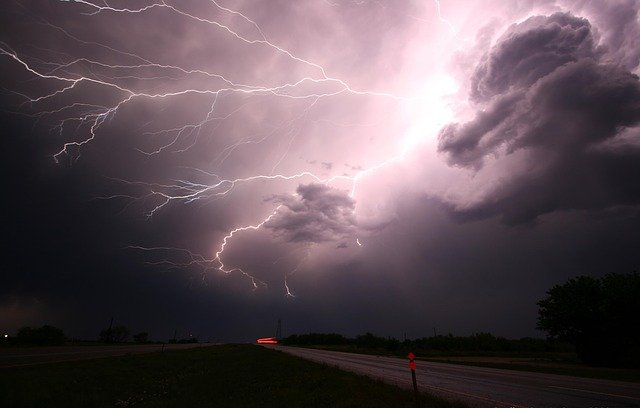What If It Rained Every Day for a Year?
What if it rained every day for a year? flooding, devastation, and disease, what could all these awful things have in common? Rain and lots of it. We’re not talking April showers here. So imagine a downpour lasting not for a few hours or even days. Instead, imagine 365 days of nonstop rain. How would that rain affect the Earth? How would it affect your health? And could it even affect how we breathe?
Today in this article, you will learn what would happen if it rained every day for a year. Rain is vital for life on Earth. The plants and animals need it. We need it, too, for drinking water and to grow crops. But too much of a good thing can tip the balance. And climate data shows that the amount of torrential rain is increasing.
A study from the University of Saskatchewan found that worldwide between 2004 and 2013, there were seven percent more extreme bouts of heavy rain. And in Europe and Asia, excessive rains increased by eight point six percent. And from 1980 to 2009, rain caused floods that killed more than half a million people. So if it were to rain nonstop for a year, it could have severe consequences for everything on Earth. But what’s causing this increase in torrential rains?
Have you ever wondered how much water is up in the sky? Well, if all the water in the atmosphere suddenly fell to Earth, it would cover the entire surface and be two and a half centimeters deep. That would be 37 and a half million billion gallons of water vapor falling on our planet. Now, imagine that rain is constantly falling in a never-ending downpour of epic proportions. Well, we know it’s going to flood, but just how bad would it get?
Well, if you like going to the beach or tropical islands, the daily rains could ruin your holidays. Islands would be affected first. They’d be lost to the sea pretty quickly. And places like the Netherlands and Europe would face dire consequences as the water level rises. There’s a good chance that they would be completely underwater. The usual protocol during a flood is to go to higher ground. It’s safer than low-lying areas, but there’s a significant issue.
If you go higher up to water avalanches, all that rain could cause landslides, mudslides, and waterfalls. So those areas would not precisely be safe either. The thing is, the initial flooding and mountain perils would be the start of our problems. Have you thought about how all that rain might affect your health?
It might be easy to overlook your physical and mental well-being if never-ending. Rain is pouring down outside, but health-wise, it’s a serious problem to deal with. You might think that there would be plenty of water to drink, but we’d have to collect that water carefully. It would be easy for our reservoirs and water systems to be flooded with pollutants from waste and debris, and that would cause disease to spread rapidly.
And don’t forget, there isn’t any sunshine when it rains hard. We all need vitamin D, and the easiest way to get it is from sunlight. But if it rains all day, every day, I guess we’ll need to buy vitamins instead. And people could start suffering from depression due to the lack of sunlight. It’s a real downer. So there will be flooding and disease. But I bet you didn’t even think what would happen to the air, did you?
Another consequence of the persistent rain would be a severe lack of oxygen for us to breathe. Healthy soil contains oxygen, but there would be much less room for oxygen with so much water in it. Water erosion would expose roots and make trees and plants unstable. And to top it all off, our crops would be wiped out. They drown, and that could be the nail in the coffin for humanity.
So if the starvation doesn’t get you, the low oxygen levels probably will. Yeah, it’s not a great forecast if it rains every day for a year.
But if it happens, is there anything we could do? Well, there are places on Earth that get a considerable amount of rain. Let’s take a look at the wettest place on Earth. It’s a state in India called Meghalaya, especially the Mountain around its lush green rainforests, help convert carbon dioxide back into breathable oxygen. Each year, it receives a staggering 12 meters of rainfall, and people have managed to thrive there for hundreds of years. One of their most ingenious solutions is building living bridges.
They’re made from the rubber trees in the rainforest. Once constructed, they can live for 500 years or longer. So there is hope for us in such a saturated scenario. Interestingly, sadly, Meghalaya and other super wet areas are drying out, and it looks like it’s being caused by global warming. But all done. Global warming is supposed to be driving more rain. Unfortunately, climate change is a complex issue. It’s a vicious cycle of mistreating our planet and environmental problems we don’t fully understand.
But we do know that global warming is affecting our world in various ways. In the case of Meghalaya and many other places worldwide, we know that climate change is causing droughts.
Monsoons are still happening, but with less rainfall. And there’s deforestation. We now know that it can affect weather patterns locally and globally. So if it rained every day for a year, even though it’s improbable, there’s something we can learn from all this. We live in a beautiful world with all its animals and plants, but we could be changing our world in ways that could spiral out of our control. Hey, I wouldn’t want that. How about you? It gets me thinking if we got all that rain, what would happen to our power systems?
